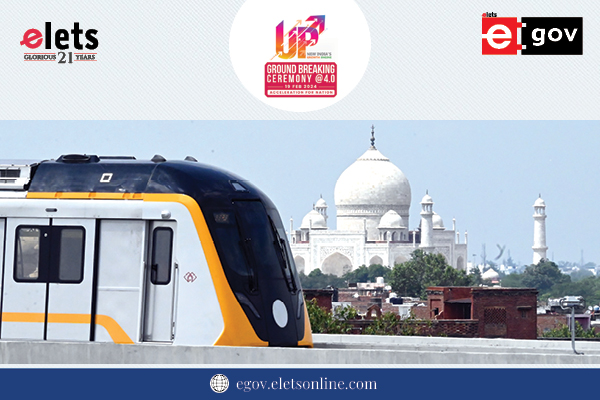
 P K Kunhalikutty
P K Kunhalikutty
Hon’ble Minister for Industries and Information Technology, Government of Kerala;
Chairman,Kerala State Information Technology Mission (KSITM)
The Government of Kerala acknowledges the critical importance of Information Technology as an instrument for the state’s overall development and remains deeply committed to its dissemination, both as a crucial engine of economic growth and as a tool for increasing productivity, speed and transparency in governance
Kerala State Information Technology Mission (KSITM) is a Society registered under the Travancore Cochin Literary Scientific & Charitable Societies Registration Act (Act 12 of 1955). It is an autonomous nodal IT implementation agency for the Department of Information Technology, Government of Kerala, which provides managerial support to various initiatives of the department.

The state information infrastructure
The Kerala State IT mission has tried to cover all aspects of IT Infrastructure required for a seamless rollout of e-Governance initiatives viz. connectivity, data centres and citizen service centres. To host various e-Gov applications of the government safely and securely two State Data Centres have been established. As on date, more than 300 websites of various departments have been co-hosted and more than 350 servers, SAN, etc. of various Departments has been co-located at the State Data Centres. The Kerala State Wide Area Network (KSWAN) is one of the top SWANs in the country reaching out to the remotest field offices. This government network acts as the backbone for the states e-Governance applications. KSWAN was set up to serve as the backbone of the State Information Infrastructure (SII), connecting the NoCs at Thiruvananthapuram, Kochi and Kozhikode and extending to 14 districts and 152 blocks of the state. The network connects more than 2,500 offices of government departments through Wireless and an even larger number through Leased Lines.
 Citizen service delivery frameworks
Citizen service delivery frameworks
Once the infrastructure is in place the next critical factor for successful rollout of e-Governance is the service delivery frameworks. The state has successfully rolled out the e-district project in two of its districts and is all set for a state- wide rollout shortly. This will be a window for all G2C services for the citizens. The project focuses on the district level services. The State Services Delivery Gateway and Services Portal (SSDG) are being rolled out and this will create a middle layer between a unified citizen services portal and the departmental applications. One of the earliest attempts in citizen service delivery is the project called FRIENDS (Fast Reliable Instant Effective Network for isbursement of Services).This is a single-window facility where citizens can deposit their bills and taxes without any hassle. This was later followed up with an entrepreneur-driven model called AKSHAYA, which is one of its kinds, and is considered a model worth emulating nationally and internationally.
Common applications for government
There are various initiatives like the e-procurement, SPARK (a government HRMS and payroll), IDEAS (file tracking system), Secretariat Workflow automation System, etc. which are common applications created for usage by all departments under government. The Government of Kerala has implemented the e-Government Procurement System to enhance transparency and efficiency in public procurement activities and monitor the same on a real-time basis. KSITM is the implementing agency for e-Procurement System across the state. NIC is the service provider. SPARK-Service and Payroll Administrative Repository for Kerala is an Integrated Personnel, Payroll and Accounts information system. This web based application has been implemented for all the employees in Kerala. The system has been developed with a view of catering to the administration, payroll and other accounts activities of government establishments. Every employee is allotted with a unique Permanent Employee Number (PEN) through the system.
Mobile governance
The state has pioneered the m-Gov initiatives in the country and today text-based and voice-based messages are supplementing the various e-Governance initiatives in departments. An encapsulated and comprehensive integrated Service Delivery Platform was created and integrated with the e-Governance infrastructure, for enabling m-Services of various departments in a “Plug and Play” fashion. The m-Governance Service Delivery Platform (SDP) includes the uniquely branded, easy-to-remember Short Code 537252 (KERALA). The citizen has to remember the spelling of Kerala and type it in non-QWERTY mobile keypad. This is the single touch point for availing many m-services from 90 state government departments. The three channels of mobile communication (voice, signalling and data) and a wide range of technologies (voice applications, applications using signalling channel and data service based applications) are being used for this purpose.Currently over 40 ‘PULL’ and also over 100 ‘PUSH’ based m-services are provided to the citizens.
Aadhaar enabled services
Kerala is targeting a 100 percent Aadhaar enrolment by the end of this financial year. The primary objective is to deliver government services through Aadhaar enabled systems. In the first phase, the integration and service delivery is proposed to be rolled out in Welfare Boards. KSITM, as the nodal agency, has initiated necessary steps for digitalising the Welfare Board database, integrate this database with AADHAAR, remove duplicate, fake and ghost IDs in the Welfare Boards, and ensure that pensions and other welfare schemes reach the targeted beneficiaries through their bank accounts. Hon’ble Chief Minister has announced that this project will be rolled out by March 2013.
Government is planning to utilise this service in the Rajiv Avas Yojana (RAY) schemes, PDS, NREGS, LPG subsidy, etc. For implementing AADHAAR based services in all these departments, the database of these departments are required for seeding the UIDAI number.
State resident data hub
The state is piloting a project for creating a citizen database linked to central UIDAI database. This would then act as a hub for citizen data or all departmental applications.
Spatial data infrastructure
The Kerala government is trying to bring the Spatial Data Infrastructure (SDI) to state level, by setting up a State Spatial Data Infrastructure, on the model of NSDI. This SDI shall act as a state level repository of spatial data, collected or acquired by various agencies.
Citizen’s Call Centre
The Citizen’s Call Centre (CCC) is a single window, IT enabled, facility of the government that enables citizens and government to interact effectively. Envisaged as a Government to Citizen (G2C) interface, the call centre enables the quick delivery of critical information, which is otherwise either inaccessible or difficult for the citizens to trace. The relevance of a government/public call centre is more important in the context of increased focus on e-Governance.
Departmental initiatives
Almost all the departments in Kerala are geared up for service delivery through the electronic system. There are pioneering efforts being made in terms of treasury computerisation, local self-government computerisation, education department related (exams and results) computerisation, motor vehicles departmental initiatives and commercial taxes automation, etc. All such initiatives have won accolades at various prestigious forums.
Motor vehicles enforcement automation project
To enhance road safety by ensuring that the rules and regulations mentioned in the Motor Vehicles Act, 1988, are strictly being adhered to by the drivers and vehicles on road this project was launched. If a citizen is found offending any rule like driving without license/ permit or breaking traffic rules, applicable penalty is enforced on the driver of the vehicle. The Enforcement Automation project enables the enforcement of road rules by means of automatic capture of traffic offences like red light violation, over speeding and wrong direction driving in addition to the 24X7 surveillance using “virtual loop” – Video Analytics solution with Automatic Number Plate Recognition and utilising mobile-wireless technologies, Geographical Information Systems (GIS) and Global Positioning System (GPS) technologies. Capacity building and inclusive development Kerala is at the forefront in providing relevant education to meet the needs and challenges of today. IIITM-K (Indian Institute of Information Technology and Management, Kerala) launched a post-graduate Diploma in e-Governance (PGDeG) to fulfil its mission of producing leaders in the areas of science, technology, and management information. The state government is also looking at setting up IT in the Kottayam district under N-PPP Model.
SPEED-IT
In the context of promoting Kerala as an IT destination, availability of skilled manpower is very vital. The recent recessionary tendencies and associated job cuts and lay-offs have only accentuated the skill factor. At a time when the job market is facing a situation of supply exceeding demand (in terms of quantity), finding a job is all the more challenging in this situation of heightened competition. To address this, the Government of Kerala has introduced a new scheme called, Special Postgraduate Education Expansion Drive in IT (SPEED-IT) for post graduates and PhD holders. Implemented by the Kerala State IT Mission, the main objective of the SPEED-IT programme is to expand the existing base of post graduates in IT and IT related disciplines. Capacity building among government departments is the most important requirement for successful implementation of e-Gov programmes. Based on the recommendation of the Administrative Reforms Commission on promoting e-Gov, the state has proposed Capacity Building in the individual level by starting a Diploma/ Degree programme on e-Governance. In this regard, Institute of Management in Government (IMG) and Indian Institute of Information Technology and Management – Kerala (IIITM-K) decided to jointly conduct a Post Graduate Diploma in e-Governance. The objective of the course is to help the participants to understand how to manage e-Governance projects implemented in the state.The course is spread over two semester with a total duration of one year. The scheme shall be open to all government employees
Chief Minister’s Sutharya Keralam
Sutharya Keralam, the innovative initiative of the Government of Kerala, helps to bring the complaints and grievances of citizens directly to the notice of the Chief Minister, thereby ensuring transparency and efficiency in the functions of the Government. This is achieved through the automation of Chief Minister’s Grievance Redressal Cell and convergence of all the available forms of communication to redress the grievances of the citizens. Insight is a joint initiative of KSITM (Kerala State Information Technology Mission) and SPACE (Society for Promotion of Alternative Computing and Employment). Insight focusses on developing/making available accessible technology for the differently abled and strives to make it available to them at very low/zero costs. The screen reader software called ORCA is a perfect example of this, it is freely available as against its high proceed counterparts. The primary focus of Insight is to give training to the visually challenged in the accessible technologies available today. Any visually challenged person is free to walk in to the Insight Centre and get trained. Apart from trainings, he is also eligible to use the resources at the centre, which include, web browsing, listening to music, burning Ds, etc. An audio magazine called Swaram is being released bimonthly for the benefit of the visually challenged. Swaram, the first of its kind in Kerala includes educational and informative content.
Be a part of Elets Collaborative Initiatives. Join Us for Upcoming Events and explore business opportunities. Like us on Facebook , connect with us on LinkedIn and follow us on Twitter, Instagram.











